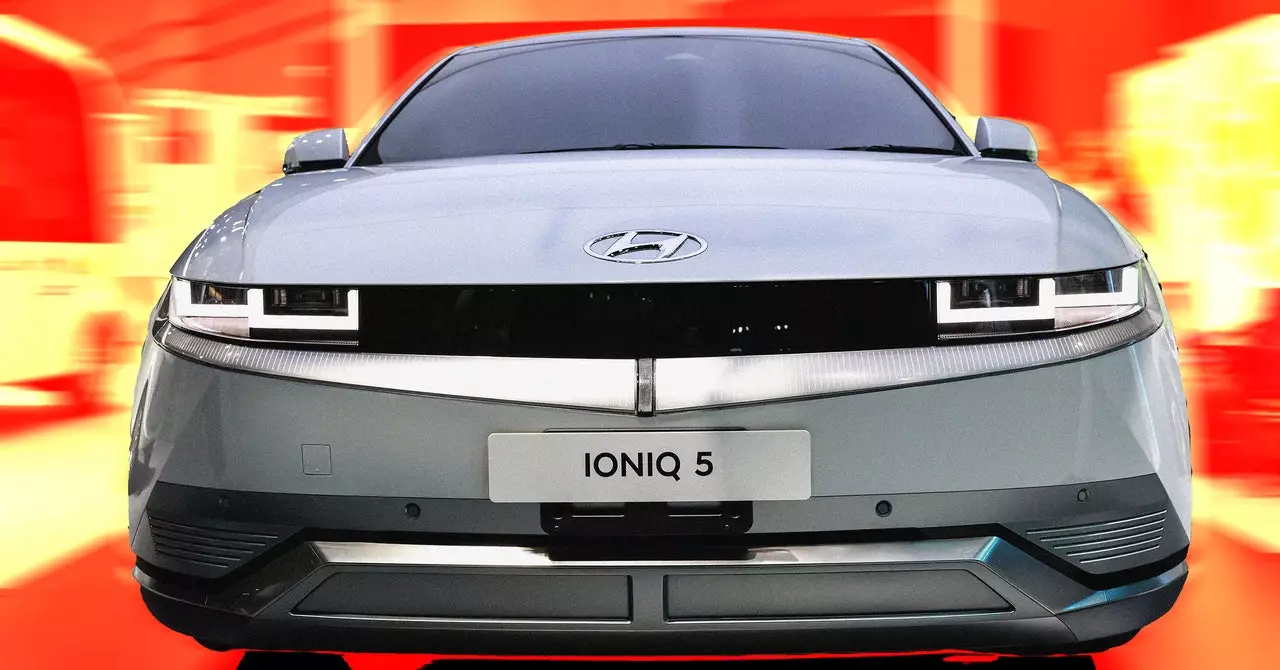Recently, Waymo, a company synonymous with advanced autonomous vehicle technology, announced an ambitious new collaboration with South Korean automobile giant Hyundai. This partnership aims to integrate Waymo’s cutting-edge self-driving technology into Hyundai’s electric Ioniq 5 models. Anticipated to begin operations in late 2025, this initiative represents a significant step forward not only for both companies but for the broader landscape of autonomous vehicle services. As consumer demand for both eco-friendly vehicles and autonomous driving solutions grows, this partnership places both companies ahead of the curve in an increasingly competitive market.
The partnership’s gravity was underscored by remarks from Hyundai’s global COO, José Muñoz, who described the agreement as merely the “first step.” This language not only hints at a deeper level of collaboration in the future but also demonstrates Hyundai’s commitment to integrating self-driving capabilities across a wider range of their vehicles. This proactive approach contrasts sharply with the current automotive industry environment, marked by rising competition and shifting trade dynamics.
However, this partnership comes at an interesting and complex time within the global automotive industry. With China emerging as a dominant force in auto manufacturing and exports, concerns over trading practices and the integrity of these vehicles have intensified among Western nations. Critics claim that the Chinese electric vehicle (EV) industry benefits from unfair trade advantages, prompting several governments to erect trade barriers to protect their domestic industries.
Recent legislative actions by the U.S. government highlight this contentious issue. The introduction of increased tariffs on Chinese-made EVs and the proposed ban on certain automotive technologies manufactured in China or Russia reflect the shifting geopolitical landscape. With the aim of safeguarding national security and economic interests, these measures also distinctly impact how collaborations like that of Waymo and Hyundai can evolve.
Yet, Waymo continues to make strategic alliances with international players, including its ongoing partnership with Zeekr, a subsidiary of China’s Geely. While some worry about the implications of working with a Chinese automaker, Waymo maintains that their technology remains insulated from potential risks. They assert that the Zeekr-built vehicles serve solely as base platforms and that all autonomous technology is integrated by U.S.-based personnel in American facilities. This reassurance is critical in allaying fears regarding foreign interference in the technology driving future transportation.
Technological Developments in Focus
Waymo’s commitment to rigorous testing and validation of its self-driving technology is evident, particularly regarding the new Ioniq 5s and the Zeekr vehicles, which are still undergoing evaluation. The complexities involved in realigning existing automotive infrastructures with next-gen technologies cannot be understated. While Waymo’s integration of self-driving capabilities into diverse vehicle platforms is a promising sign of progress, it also presents logistical and technical challenges that must be navigated carefully.
The introduction of self-driving fleets into public transport systems necessitates meticulous regulatory oversight, rigorous testing, and public confidence to be successful. The public’s perception and acceptance of such technology will play a significant role in determining its trajectory, particularly in an era where digital security and privacy concerns are paramount. Public dialogue surrounding these advancements should therefore be encouraged to ensure that potential adopters are informed and optimistic about the future of transportation.
The partnership between Waymo and Hyundai signifies a pivotal moment in the evolution of autonomous vehicles. It encapsulates the optimism surrounding green technology while simultaneously reflecting the real challenges posed by international relations and trade dynamics. The partnership is more than just an alignment of company interests—it represents a broader shift in how technology is developed, shared, and regulated in an interconnected world. As both companies prepare to implement this initiative, they must remain vigilant about the potential consequences of their decisions—not only for their businesses but also in shaping the future of transportation for all. In this rapidly changing landscape, adaptability, innovation, and transparency will be essential to navigating the road ahead in autonomous driving technology.

